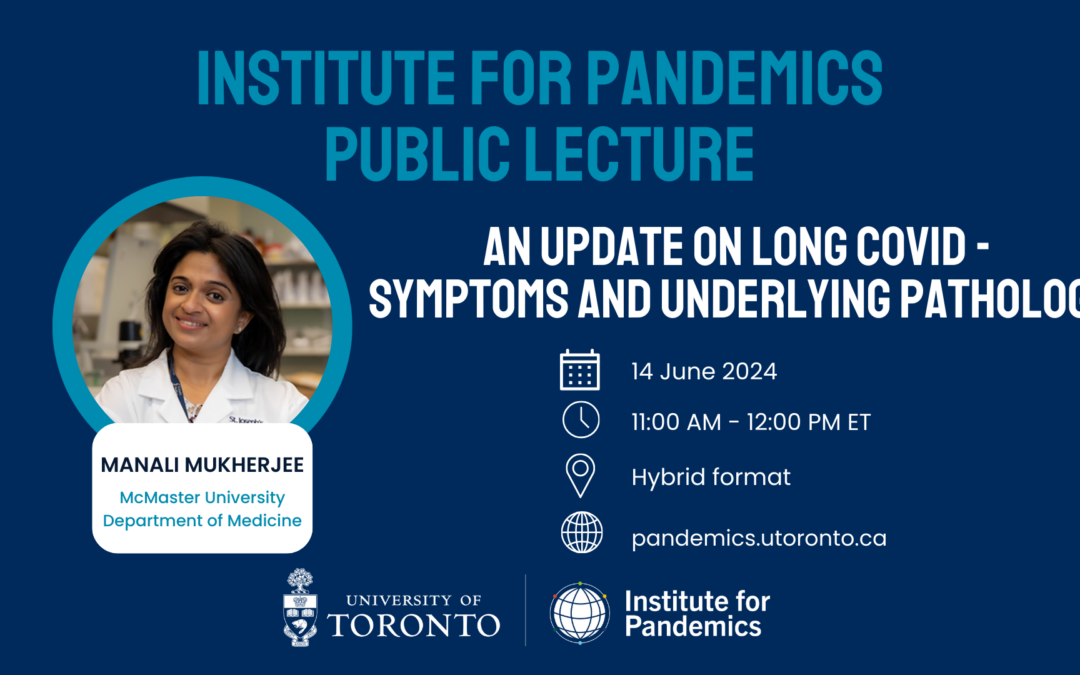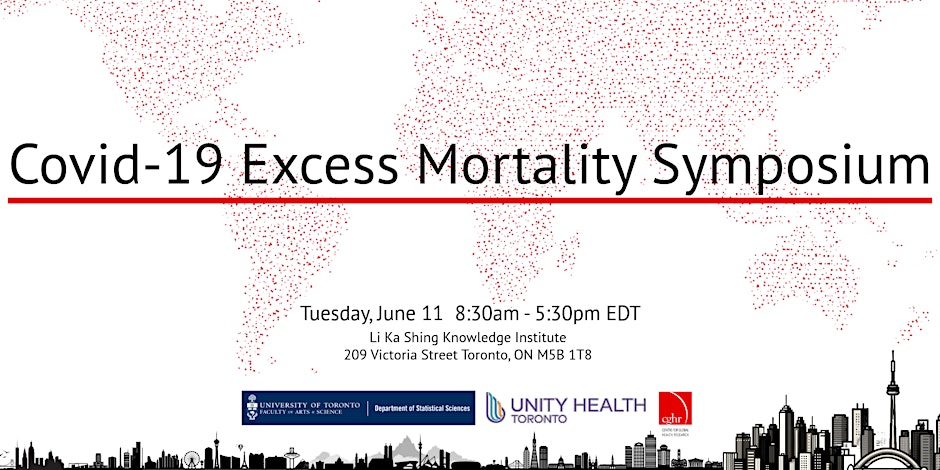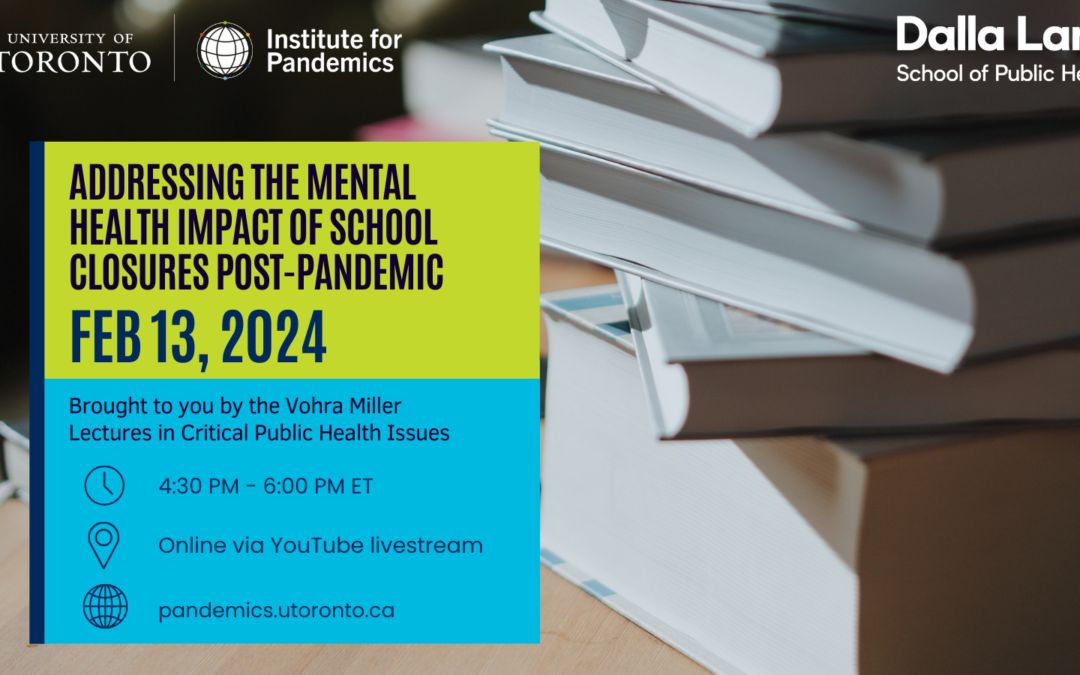
May 28, 2024
The Institute for Pandemics presents a public lecture by Manali Mukherjee of McMaster University titled, “An update on Long COVID – symptoms and underlying pathology.” The learning objectives are: Disseminate findings from the CITF-funded AIPACs study (Autoimmunity in...

May 27, 2024
The COVID-19 pandemic is estimated to have caused nearly 15 million excess deaths globally by the end of 2021, more than twice the number of COVID-specific deaths reported. The Omicron waves in 2022 likely added to this total. In contrast to incidence and prevalence...

Feb 20, 2024
February 20, 2024 By Betty Zou Saeedeh Moayedi-Nia first witnessed inequities in health care access when, as a nursing student in Iran, she volunteered with a children’s rights group helping Afghan child refugees. Because many of the children didn’t have birth...

Jan 23, 2024
Samantha Ismail led a study looking for antibodies against SARS-CoV-2 in human milk. January 23, 2024 By Betty Zou The COVID-19 pandemic was an especially harrowing time for pregnant people and new parents. The uncertainties about how the new coronavirus could affect...

Jan 16, 2024
The fourth-annual Vohra Miller Lectures in Critical Public Health Issues in collaboration with the Institute for Pandemics aims to foster a dialogue on health equity issues, as it relates to the youth educational landscape. While recognizing the importance of the...







